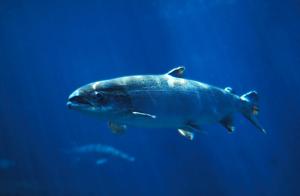Puget Sound tribe uses aquaculture to counter salmon shortages

(The Center Square) – A new video from the Washington Policy Center (WPC) highlights the efforts of the Jamestown S’Klallam Tribe in the Puget Sound area to develop an aquaculture program to provide economic opportunity and a food source for its community.
“As we work to restore the salmon population in Puget Sound, tribes are finding creative ways to feed their members and become more self-sufficient,” said Todd Myers, environmental director at the WPC. “Tribes have the local control and flexibility that allows them to follow good science to manage aquaculture that is sustainable and provides good food.”
The late Kurt Grinnell, who was a tribal council member and general manager of the aquaculture program, explains in the video that just a few generations ago the local rivers and tributaries were filled with an unending supply of salmon. It got to the point though, that he shut down his fishing business because he was catching so few fish that selling them did not bring in enough money to even pay for the gas for his boat.
“We’re a sovereign nation, but we’re not truly sovereign if we can’t feed our people,” he said.
The tribe has partnered with the University of Washington and the National Oceanic and Atmospheric Administration to create a sablefish hatchery to farm healthier, toxin-free fish.
Grinnell said the food source will help tribal members dealing with obesity or diabetes will benefit from having healthier alternatives and that the sablefish are able to be eaten every day.
The fish are grown in underwater net pens, rather than in above ground tanks, due to space and cost considerations. Grinnell said the cost of the power needed to operate above ground tanks would increase the cost of the fish, placing the meat beyond the budgets of most people.
“Kurt Grinnell’s impact on the Jamestown S’Klallam Tribe’s vision and mission has been immeasurable,” said Tribal Chairman and CEO W. Ron Allen. “At a time when he saw many of our traditional fishery resources in decline, he looked to aquaculture — finfish and shellfish — as a significant part of our self-reliance goal to create jobs and new revenue sources for programs and services while working to restore those traditional resources. Kurt was always about respect, integrity and vision. He knew the Tribal vision was complex, but he was determined that aquaculture be a part of it.”
The tribe owns a health center that has distributed 30,000 COVID-19 vaccines, as well a casino, hotel and golf course.
Disclaimer: This content is distributed by The Center Square

